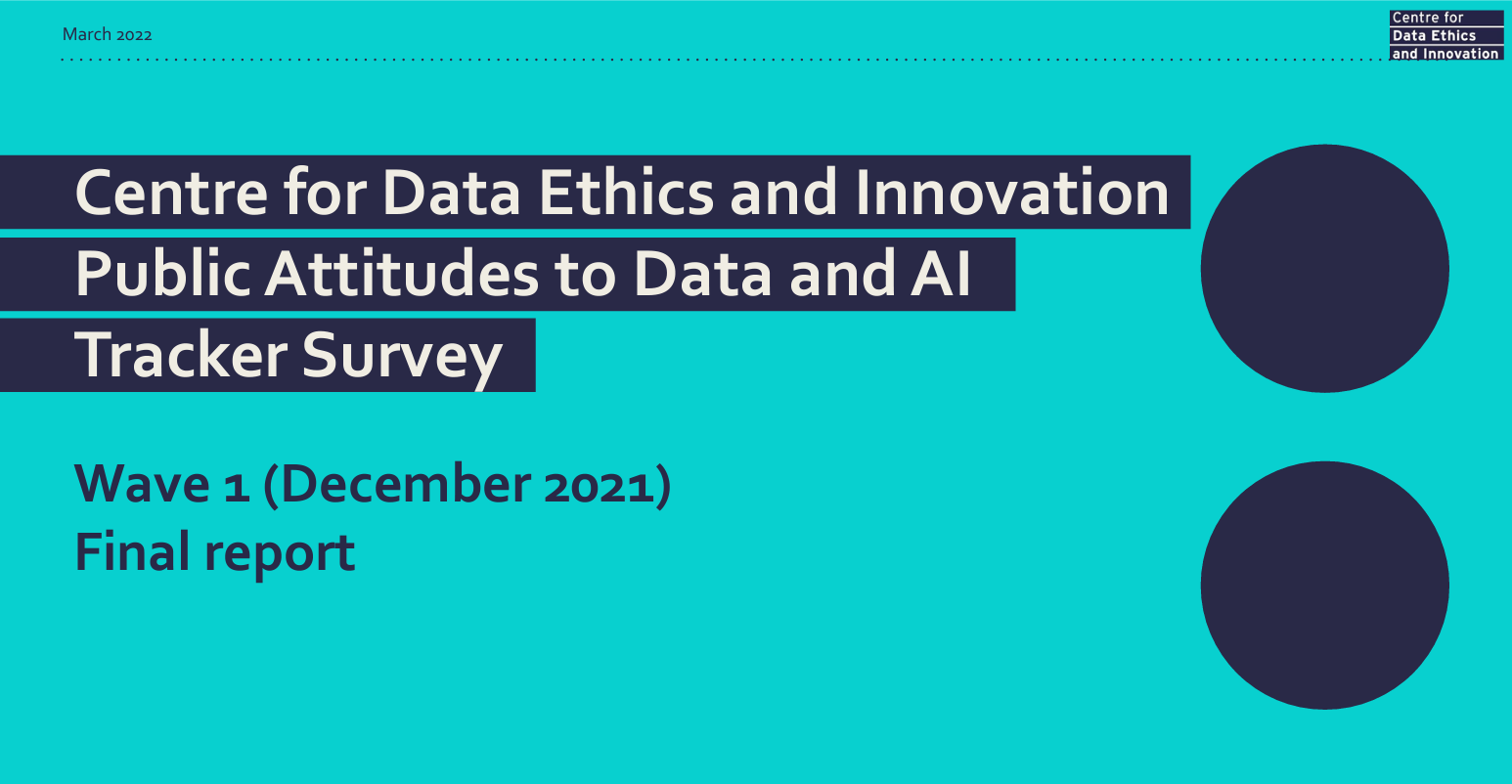Public attitudes to data and AI: Tracker survey published
On 30 March 2022, the Centre for Data Ethics and Innovation published the findings from the first wave of their tracker survey, which is the first survey (globally) designed to monitor how attitudes towards data and AI vary over time. The survey provides novel insights about how the UK public perceive and interact with data and data-driven technologies.
The key findings from the first wave - which was conducted in December 2021 - are as follows:
People are comfortable with personal data being used for a variety of purposes, particularly when the societal benefit is clear. Most people (81%) are comfortable providing personal data about themselves to the NHS to develop new healthcare treatments, and to government to deliver public services (62%).
People report feelings of uncertainty about current data practices. Over half of the population (52%) report that they know only a little or nothing about how data about them is used and collected in their day-to-day lives. Respondents also reported feelings of concern about data security. The safety and security of personal data was identified as the largest perceived risk of data use amongst the public.
Concerns about data use are strongly impacted by the extent to which individuals trust the organisations using data about them, and the degree of data governance in place.
Respondents reported feeling concerned that the benefits of data and AI use will not be felt equally across society. Whilst 31% thought the benefits of data use would be shared equally, 31% of the population disagreed with this statement. More people believe that AI will have a positive impact on large businesses (48%), compared to smaller businesses (39%) and minority groups (26%).
To delve deeper into the drivers of trust in data use and go beyond top-level statistics, the survey incorporates advanced analytics, including a conjoint experiment and segmentation analysis. This enabled insight into the drivers of trust in data use and attitudinal differences across the population.

